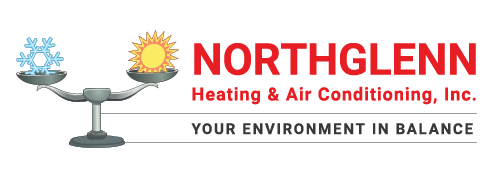
We can all benefit from saving a few bucks where we can. One of the easiest ways to do so is by improving energy efficiency in your home. Upgrading your HVAC equipment or installing a smart thermostat, for example, offers more control over your heating and cooling system, contributing to a more energy-efficient home and savings on your monthly energy bills.
Read on to read about 4 ways you can make energy-efficient home changes.
1. Try a Smart Thermostat
If you still use a round-dial thermostat and adjust it manually, try taking a step toward the future by installing a smart, or Wi-Fi, thermostat – which includes a number of features to improve your home's energy efficiency.
The functionality homeowners appreciate the most is having the ability to control their smart thermostats from wherever through their smartphone or other smart device. For instance, when you forget to change your thermostat before going on vacation, you can simply take out your smartphone and make the necessary adjustment.
Like a programmable thermostat, a smart thermostat enables you to pre-set your home’s temperature determined by the time of day and day of the week so you’re not cooling or heating an empty house. Smart thermostats also offer the capability to learn your temperature preferences over time and automatically make energy-efficient adjustments. They can even provide monthly energy reports that demonstrate how much energy you are using and when so you can make changes to reduce costs.
If you’re curious about how to get a free smart thermostat, ask your utility company to find out if there are any discounts or free smart thermostats offered.
2. Routine HVAC Maintenance
Sadly, many homeowners often forget about having their heating and cooling systems maintained. While this might not seem like a huge deal, a lack of maintenance will sometimes result in a number of issues, including inefficiency, breakdowns, and a shorter system lifespan.
During an HVAC maintenance service, a heating and cooling technician is going to inspect your HVAC system, clean important components, and pinpoint minor issues before they create bigger, more expensive repair issues. Tune ups keep HVAC systems working at optimal condition, which means less energy is needed to heat and cool your home. This will reduce your energy bills, prolong the lifespan of HVAC equipment, and lead to fewer repairs.
We recommend two HVAC tune ups each year – once in the spring before summer and again during the fall before the arrival of winter weather.
3. Getting rid of Your Old, Inefficient HVAC Equipment
Unfortunately, like any appliance, HVAC systems can't run forever and ultimately need to be replaced. Modern heaters and cooling products are much more effective than units manufactured just over a decade ago. Fortunately, local HVAC companies like Northglenn Heating & Air Conditioning can handle professional services like furnace installation in Northglenn.
Well-maintained furnaces and air conditioners can live approximately 15-20 years. If your systems are within that span, it might be a good idea to replace them ahead of time to minimize the risk of premature breakdowns that can leave you cold and uncomfortable on a cold winter night. If your system is around 15 years old and has a problem that needs an expensive repair, it’s definitely time to replace the unit. Per the U.S. Department of Energy, getting a new HVAC system can save you between 20-40% on your monthly energy bills, so you’ll recoup some of the costs of buying a new system.
A professional comfort technician can help you determine the most energy efficient HVAC system for your needs. In general, try to find HVAC systems that are Energy Star certified, meaning the equipment meets strict guidelines established by the U.S. Environmental Protection Agency. LENNOX HVAC systems can be some of the most efficient systems available, offering both high AFUE and SEER ratings. AFUE is used for heating systems and illustrates how well they convert fuel to heat. SEER, on the other hand, is used to quantify the energy efficiency of air conditioning systems.
Call a reputable HVAC provider like Northglenn Heating & Air Conditioning for air conditioning installation in Northglenn.
4. Switch to More High Efficiency Air Filters
If you’re shopping for new HVAC filters, consider that not all air filters are created equally. Specific air filters are far more efficient than others, contributing to lower energy bills and a cleaner home environment.
The effectiveness of HVAC air filters is rated by their Minimum Efficiency Reporting Value, or MERV rating. The MERV scale ranges from 1-20; the higher the number, the more efficient the filters are. It’s relevant to note, though, that high-efficiency air filters can actually restrict airflow too much based on the type of HVAC system you have. It’s worthwhile to study the owner’s manual before purchasing a filter to determine the best option for your system.
